In Australia, approximately 50,000 people will experience a stroke every year. As one of the leading causes of disability, it’s important that we understand what a stroke is and how it affects those who experience one. Despite being a reasonably common occurrence, a stroke can differ massively from person to person. Read on as we discuss the different types of strokes, what they entail, and how stroke recovery can be approached.
This blog outlines the two primary types of strokes people experience, explaining what causes them and the common side-effects faced afterwards. If you’re looking for rehabilitation or recovery services due to having experienced stroke, reach out to Royal Rehab today on (02) 9808 9222.
What is a stroke?
A stroke occurs when there are issues with blood supply flowing to the brain. Given how blood works to carry oxygen and vital nutrients to all our cells, this can cause serious damage – the brain is the centre of all mobility, communication, emotion, and thought, so the loss of blood supply can have significant effects. As blood flow gets interrupted, brain cells start to die.
The effects and symptoms of a stroke can change for everybody who experiences one. The impact is entirely dependent on where the brain is affected and how severe the loss of blood supply is. Sometimes stroke symptoms may only last an hour, which is referred to as a transient ischemic attack, whilst others may last longer.
The consequences of a stroke can be long-lasting. Some of the most common symptoms people face due to a stroke include weakness throughout limbs, limited mobility, difficulty communicating, pain throughout the body, fatigue, problems swallowing, and thinking difficulties. Strokes are a leading cause of disability in Australia.
Ischaemic strokes
An ischaemic stroke is the most common type of stroke people experience, accounting for roughly 87% of cases. This condition is exactly what has been described above, where a blood vessel is blocked and blood flow to the brain is interrupted. Ischaemic strokes are typically caused by atherosclerosis, or a build-up of plaques lining the blood vessel walls, which can lead to clots that obstruct blood flow throughout the body.
Haemorrhagic strokes
Haemorrhagic strokes, however, are a little different. As the rarer type of stroke, they make up approximately 13% of cases. A haemorrhagic stroke is caused by direct bleeding to the brain. When a weakened blood vessel ruptures, it bleeds into the surrounding brain, where the blood accumulates and compresses the brain tissue. There are two distinct types of weakened blood vessels that commonly cause haemorrhagic strokes: aneurysms and arteriovenous malformations.
Rehabilitation for strokes
Across both types of strokes, the symptoms and effects can be long-lasting and difficult to manage. From mobility to communication, the brain is the control centre for all our body’s most vital functions, and a stroke can affect some of the most fundamental parts of our physical wellbeing.
However, stroke recovery and rehabilitation programs have the capacity to help people relearn important skills and improve their overall quality of life. Through physical therapy and stroke rehabilitation exercises, stroke recovery is possible. The sooner somebody begins rehabilitation after their stroke, the more likely it is that they will be able to regain lost skills and abilities.
Enquire today to begin recovery
No matter your experience, symptoms, or the type of stroke you’ve suffered, rehabilitation may be the right option for you. The sooner you start your rehabilitation program, the higher the chance that you will see improvement in your physical and communication skills.
If you’re looking to begin the stroke recovery process, our team at Royal Rehab has the experience needed to guide you through it. With personalised programs catered to your individual needs and experience, we will work closely with you to ensure we provide all the services we can to help you recover.
Contact Royal Rehab today on (02) 9802 9222 and enquire about our stroke rehabilitation programs to begin your journey to recovery.



